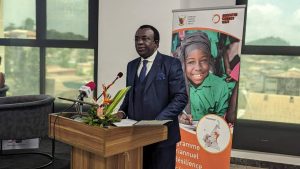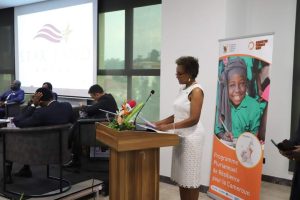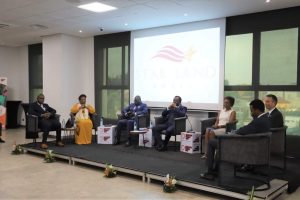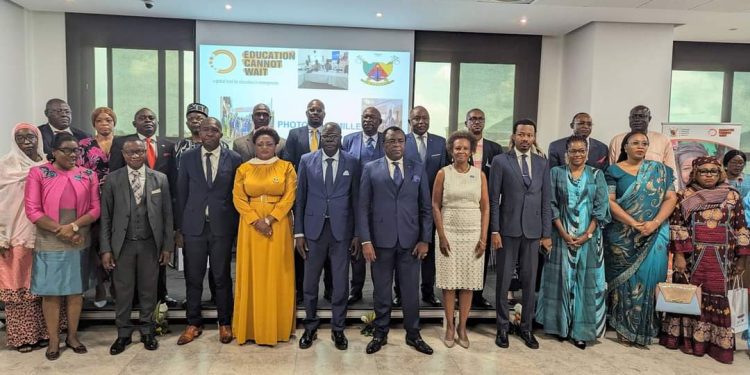Story, Louvier Kindo Tombe
The objective of the workshop was first of all to present statistics of the intervention of the programme since 2022, and also to call for mobilization of additional resources to enable the programme reach its earmarked target. The workshop held in the presence of local administrative authorities and government Ministers like the Minister of Youth Affairs and Civic Education, Mounouna FOUTSO, and the Minister of Basic Education, Laurent Serge Etoundi Ngoa.
“We noticed that we still lack about 1/3 of the pre-evaluated means and we have to find them. Our partners have promised to help us in that light,” Minister Etoundi Ngoa said.

The total budget for the MYRP is 75 million USD for a target of 681,000 children. Education Cannot Wait provided 25 million USD in start-up funds to cover 227,000 children over the period from August 2022 to August 2025.
This leaves a funding gap of 50 million USD needed to support the remaining 454,000 children, including internally displaced persons, returnees, refugees, and children affected by the North-West/ South-West crisis, the Central African crisis, and the Lake Chad Basin crisis
“This ambitious programme cannot be achieved without the unwavering support of all the players present here. The Government of Cameroon, international partners, non-governmental organizations, private sector, and local communities, each of us has a crucial role to play,” Nadine Perault said in her speech at the workshop.

“By mobilizing our resources and joining our efforts, we make a significant and sustainable difference for the vulnerable children affected by crises.”
The MYRP programme

At a time when discussions on the transformation of education are underway, this new programme, the Multi-Year Resilience Programme funded by ECW, helps to strengthen the resilience of our education system and increase opportunities for all girls and boys affected by the various crises in Cameroon to access inclusive quality education in a healthy, safe and protective environment.
The project is being implemented in 64 council areas across the country, 54 vocational training centers, 110 secondary schools, 141 primary schools and 172 kindergartens. It targets 681,000 children including 11 percent of children living with disabilities, 23 percent refugees, 30 percent of Internally Displaced Persons (IDPs) and returnees, 47 percent from host communities and 56 percent girls.
In Cameroon, more than 1.9 million school-age children are in need of humanitarian assistance in the education sector, including 454,854 refugees from neighbouring countries.
The Multi-Year Resilience Programme (MYRP) is a multi-sectorial intervention that targets children affected by crises with the aim of improving access to equitable, inclusive and quality education for school-age boys and girls.
So far, with 25 million USD from ECW as startup fund, it has reached over 227,000 children across the country, among them 91,161 primary school children.
There is equally the school funding program that has help children to receive food in schools. Some 8,285 children from 9 schools in the East and Adamawa regions have received hot meals made from local products every school day, as part of the project.
“The MYRP has contributed in constructing schools and latrine infrastructure to ensure that girls also can have their own bathroom and remain in school and be safe,” Nadine Perault revealed.
“We have also a training program for teachers and for other professionals working in ministries responsible of education in Cameroon. Mayors and local administrators and councils areas have not been left out of the implementation.”
According to the UNICEF Representative, “the implementation has led to an increase in the number of children in crisis hit areas to access education by approximately 20 percent”.
Worth noting is the fact that if no action is taken, children living in crisis contexts will continue to encounter significant barriers to education. Without intervention, they risk remaining unprotected and deprived of the inclusive, quality education and support they need to thrive. It is crucial that we address these challenges now.








